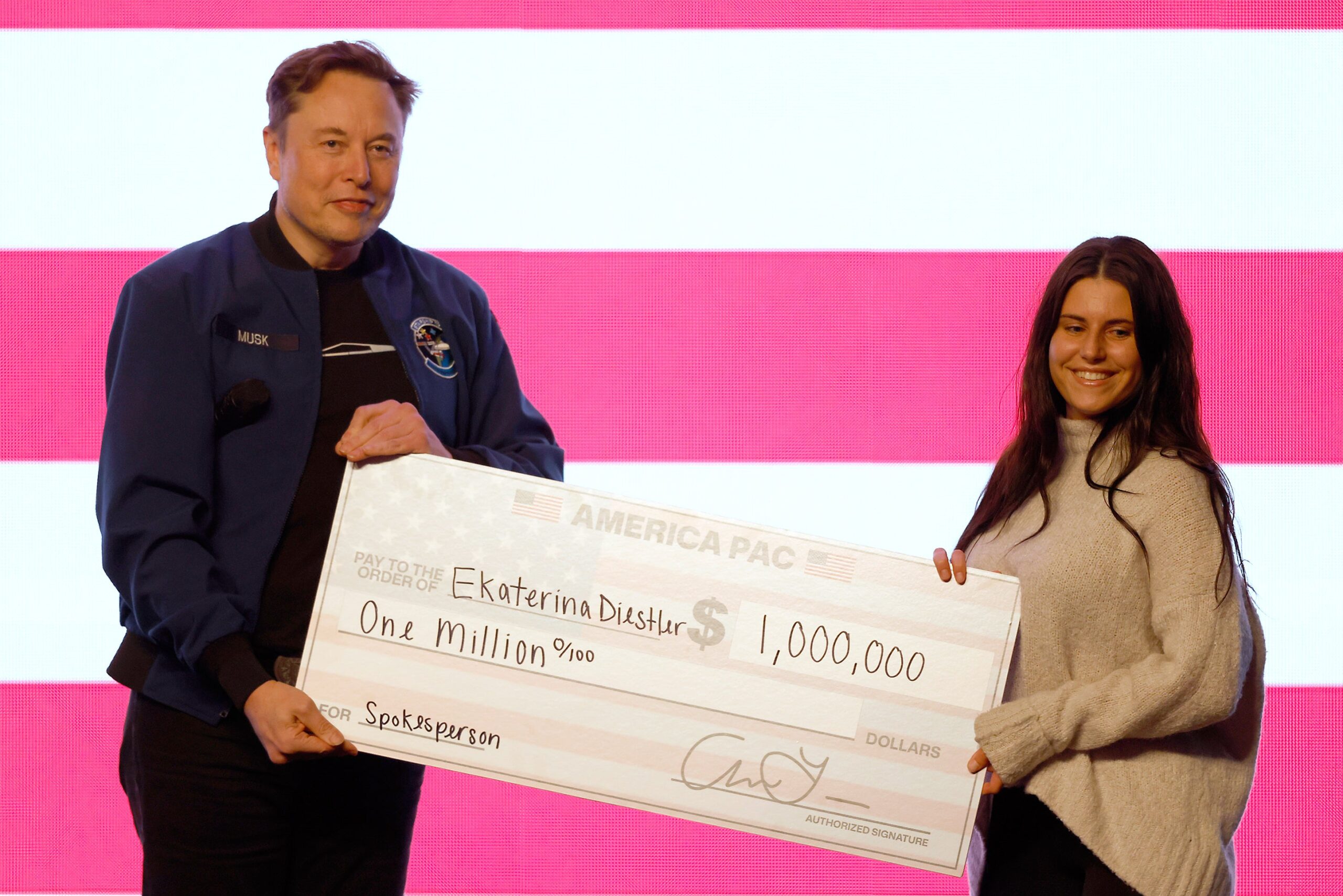A judge in Texas denied, on Wednesday, Elon Musk’s request to dismiss a class action lawsuit against him and his political action committee brought by a group of voters who participated in his $1-million-a-day “giveaway” leading up to the 2024 election.
Over the last few months, lawyers for Musk and America PAC have sought to get rid of the lawsuit brought by voters in battleground states who claim they were defrauded when the tech mogul and his PAC misled them to believe that if they signed a petition and gave away personal information, they could “randomly” win $1 million.
In reality, Musk and his PAC had pre-selected people to win the $1 million in exchange for a spokesperson contract – meaning those who signed the petition had no chance of winning.
While lawyers for Musk and the PAC argued that there were “red flags” in their petition announcement that should have tipped people off that they were unlikely to win $1 million, the Texas judge disagreed.
“The Court finds it is plausible that [the plaintiff] would rely on Musk’s assertion that $1 million would be given out randomly notwithstanding his or America PAC’s later statements,” Judge Robert Pitman, appointed by former president Barack Obama, said in his order.

Pitman pointed to several “misleading words” that Musk and the PAC used to promote the petition program such as claiming they were “awarding” or “giving away” $1 million to those who signed, asserting that an individual “won” the money, and telling potential voters that “all you need to do is sign up” to “have a daily chance of winning.”
Musk and America PAC will now have to face the lawsuit, filed in Texas, from the group of voters.
The Independent has asked America PAC for comment.
Musk, the world’s wealthiest man, launched America PAC last year shortly before the 2024 presidential election to assist President Donald Trump’s campaign.
Soon after, they began promoting a program in battleground states where voters could sign a petition in favor of the Constitution under the guise that it submitted them into a pool of potential $1 million winners.
Musk and America PAC were then accused of launching an “illegal lottery scheme” to influence voters ahead of the election. They denied the allegation, and clarified that winners had been pre-selected and were paid, contracted spokespeople.
But in signing the petition, voters also turned over personal identifying information such as their address, cell phone number, and email address – information that the plaintiffs claim was valuable in such states.
The lead plaintiff in the case, an Arizona woman named Jacqueline McAferty, said in the complaint that she would have never turned over her personal information had she known she could not have actually won the $1 million.
The ruling from Pitman is the latest blow to Musk as he navigates his influence in U.S. politics. After Trump won the election, Musk spent a brief amount of time serving as a senior adviser and helping start up the Department of Government Efficiency.
But after a public falling out with the president, Musk has looked for other ways to use his wealth to influence politics. In July, Musk suggested he would start a new political party called the “America Party” to give voters a third-party option. However, it appears he is abandoning his party idea, with multiple reports suggesting Musk is now looking to throw his support behind other Republican candidates in 2028.
